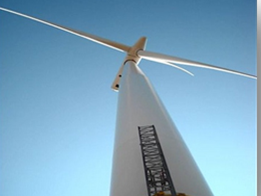 Clean Energy Career Coaching services differ from those offered through initiatives like the Economic Opportunity Program (EOP) in that it is industry-driven, and focused specifically on careers in the clean energy sector. Clean Energy career coaches welcome referrals from EOP coaching programs for customers to be dual-enrolled in both programs. With dual enrollment, the clean energy coach and EOP coach work in partnership to support the customer, and with an intentional approach to prevent duplication of services.
Clean Energy Career Coaching services differ from those offered through initiatives like the Economic Opportunity Program (EOP) in that it is industry-driven, and focused specifically on careers in the clean energy sector. Clean Energy career coaches welcome referrals from EOP coaching programs for customers to be dual-enrolled in both programs. With dual enrollment, the clean energy coach and EOP coach work in partnership to support the customer, and with an intentional approach to prevent duplication of services.
As an industry-driven career coaching program, a top priority is aligning the work of preparing job seekers for clean-energy careers with the workforce needs of employers over the short, medium, and long term. Doing this has many benefits, but chief among them is that job seekers are positioned to access the best path to launch their clean energy career. The career plans of job seekers can be much more effective when they can incorporate information and guidance from those who make hiring decisions.
To obtain that information from hiring decision makers, the Clean Energy Industry Employer Advisory Panel has been formed and has begun a collaborative process to create a regional workforce development plan for the clean energy industry. This plan will identify the occupations that are in demand; quantify the position needs in the short, medium, and long term; and identify the knowledge, skills, and abilities required for entry. In forming this advisory panel, Worksystems has reached out to more than 90 businesses in the clean energy sector. Among these are TriMet, Bonneville Power Authority, Portland General Electric, Pacific Power, Daimler Trucking North America, Hunter Davisson, Powin, Daikin Comfort Technologies, Elemental Energy, Imagine Energy, Neil Kelly, AZ Construction, Comfort Insulation Specialists, Home Energy Life Performance Group, SymbiOp Landscaping, The Heat Pump Store, City of Roses Disposal and Recycling, Community Energy Project, Great Northwest Installation, Home Performance Guild, and National Electrical Contractors Association signatory contractors Christenson Electric Inc., Cherry City Electric, and Dynalectric.
The workforce development strategy created by this panel will provide a clearer picture of the job postings we may expect to see in the next three to 24 months. This will add much-needed specificity to the employment opportunities available, and the insight they share will enable us to build one-pagers for in demand occupations that summarize the entry requirements and the criteria by which hiring managers evaluate candidates. We will also be able to prioritize the classes and training programs for customer ITAs that add value and make job seekers more competitive for hire.
All of this will enable career coaches to have frank and realistic conversations with their customers about the near-term employment prospects in their first-choice occupation and the pathway for them to access it. The clean energy industry offers a variety of employment opportunities, many with transferrable skills and experiences that may allow a customer to enter employment sooner in a second or third choice, without abandoning their career plan and progress toward a first-choice occupation.
Industry employers are only one part of this ecosystem and will contribute to success insofar as job seekers are interested, prepared, and able to be connected to the employment positions that they will need to fill. The Clean Energy Career Coach Community of Practice consists of the clean energy career coaches and other stakeholders and collaborators in the Portland Metro Area that are working to create and sustain equitably accessible pathways to living-wage careers.
Clean Energy Career Coaches are at the core of this community and are empowered to take ownership in the development of its collective expertise. Coaches are well-positioned to bring customer needs to the table and elevate job seekers’ voices in the public workforce development ecosystem.
To provide the mechanism for mobilizing resources to support job seekers, the systems and structure of WorkSource Portland Metro (WSPM) will be incorporated. WSPM will play the crucial role in processing, preparing, and administering Individual Training Accounts for Occupations Skill Training, mobilizing funds in support of Short-Term Vocational Training, and facilitating and administering On-The-Job Training.
If occupational skills training is a part of a customer’s plan, the career coach will support the customer in preparing the required documentation and application to be submitted to staff at one of the four WSPM Center where PCEF funds have been set aside for Individual Training Accounts (ITAs).
These PCEF funds are only available to Clean Energy Coaching enrolled customers and they can be accessed for ITAs at the following WorkSource Centers: Beaverton-Hillsboro, Tigard, Southeast, and North-Northeast. Pending availability of funds, referrals to WorkSource Centers for ITAs should be made based on the customers’ preferences for location.
As an industry-driven, occupation specific career coaching program, the goal of training is to focus on:
1) Shortening the path to earning an income and developing relevant work experience in a clean energy-related pathway. Direct hire opportunities should be prioritized.
2) Referring to training only if:
a) It is required for entry to a career; or
b) Employers in the industry indicate that it is a highly regarded training, that develops knowledge, skills, and abilities that are in demand.
3) Connecting customers to opportunities with employers that are working on PCEF funded projects. There is a requirement that contractors on PCEF projects must pay at least 180% of the local minimum wage.
Worksystems is working with the Clean Energy Industry Employer Advisory Panel review clean energy-related training programs in the area to add a column on the Portland Metro Area’s Eligible Training Provider List (ETPL) that designates them as approved for use of PCEF funds. During that review process, training programs will be evaluated using the following criteria:
- If the class or training program is listed on the Oregon State ETPL:
- Is the customer’s career goal that is advanced by completing this training, related to the clean energy industry?
- If it is not a clear connection, the PCEF team at the Bureau of Planning and Sustainability will be consulted to determine if it is clean energy-related or not.
- If the class or training program is not listed on the Oregon State ETPL:
- Employer Buy-in/Industry recognized – Do employers see a candidate that has completed this training as more competitive? Do they earn more at entry? Does it open additional, or quicker pathways to advancement?
- Connection to a Job/In-demand Skillset – Does this training program have a clear connection to a job upon completion? Are there employers that routinely hire program alumni/completers? Is there a demonstrated demand for the skill set in support of the clean energy transition? Does completion of this training increase likelihood of acceptance into an apprenticeship training program, or move a candidate up a waitlist for dispatch?
- Advancement Potential of Jobs upon Completion – Does the job that is available to a candidate upon completion open access to pathways for advancement, and meet wage requirements of PCEF?
- Program Reputation – Completion/Placement Rates- is there a history of this program successfully graduating priority populations in the training?
- Ratio of Tuition Costs compared to Earning Potential/ Program not on HECC watchlist.
- City of Portland Bureau of Planning and Sustainability PCEF staff approval of the customer career plan goal’s connection to the clean energy industry if it is not an undebatable connection.
As eligible classes and training programs are identified, a list will be shared with WSPM staff and clean energy career coaches and updated regularly.

